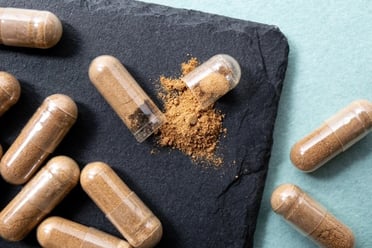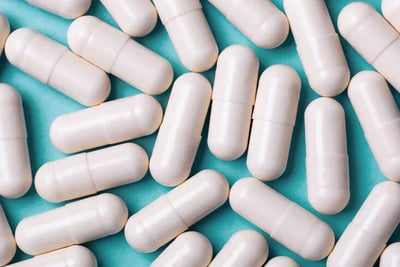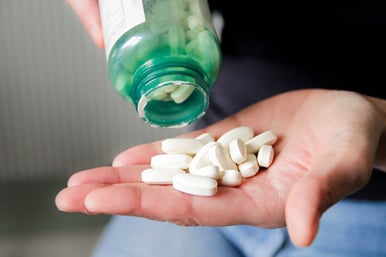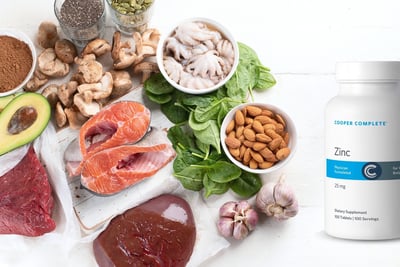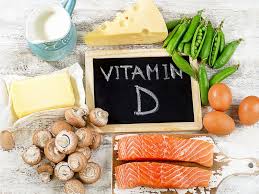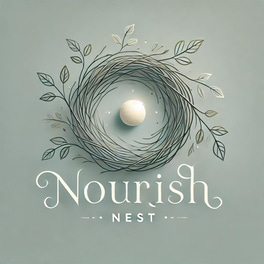Top 5 Vitamins and Supplements to Boost Testosterone Levels
3/5/20258 min read


Introduction to Testosterone and Its Importance
Testosterone is a vital hormone predominantly found in men, playing a pivotal role in various physiological functions. As a member of the androgen group, testosterone is crucial for the development of male physical characteristics, including increased muscle mass, bone density, and body hair. Beyond its physical attributes, testosterone significantly influences mood, cognitive function, and overall well-being. This hormone also plays an essential role in maintaining libido, contributing to a healthy sex drive and reproductive function.
In many cases, testosterone levels naturally decline with age, especially after the age of 30. Low testosterone levels can lead to a range of health issues, including fatigue, decreased muscle strength, mood disorders, and diminished libido. Consequently, maintaining healthy testosterone levels is of paramount importance for both physical and mental wellness. Furthermore, imbalances in testosterone can contribute to obesity, diabetes, and cardiovascular diseases, making its regulation a critical aspect of overall health.
Nutrition plays an influential role in testosterone production. Specific vitamins and minerals, derived from a balanced diet, are fundamental to hormone synthesis. Nutritional deficiencies can impact testosterone levels, leading to adverse health effects. In addition to diet, targeted supplementation can also support testosterone production effectively. Various supplements containing specific vitamins and minerals have been shown to enhance testosterone levels when utilized alongside a healthy lifestyle.
Recognizing the significance of testosterone in the male body underscores the urgency to monitor and manage hormone levels proactively. With the right dietary choices and potential supplementation, men can take critical steps toward optimizing their testosterone levels, thereby enhancing their health and overall quality of life.
1. Vitamin D: The Sunshine Vitamin
Vitamin D plays a crucial role in various bodily functions, notably in the production of testosterone. This fat-soluble vitamin is not only essential for calcium absorption but also significantly influences hormone regulation, including that of testosterone. Research indicates that individuals with adequate levels of Vitamin D tend to exhibit higher testosterone levels compared to those suffering from deficiency. The importance of maintaining balanced testosterone levels extends beyond reproductive health; it affects muscle mass, mood, and overall vitality.
Vitamin D deficiency can lead to a decrease in testosterone levels, which may contribute to several health issues, including fatigue, reduced libido, and diminished overall well-being. The potential link between Vitamin D and testosterone levels emphasizes the need for adequate intake of this vitamin. Sources of Vitamin D are naturally found in sunlight, as the skin synthesizes this essential nutrient upon exposure to UV rays. However, geographic location, skin pigmentation, and lifestyle factors can impede sufficient sunlight exposure, leading to deficiency.
Dietary sources of Vitamin D include fatty fish, egg yolks, and fortified foods such as dairy products and cereals. For individuals who struggle to obtain enough Vitamin D through diet and sunlight, supplementation can serve as an effective alternative. When considering supplementation, it is important to consult a healthcare provider to determine the appropriate dosage, as excessive intake can result in adverse health effects. General recommendations often suggest a daily intake of 600 to 800 IU, although some studies propose that higher doses may be necessary to achieve optimal testosterone improvement.
Incorporating Vitamin D into one’s lifestyle not only promotes hormone balance but also supports overall health. It is vital to be proactive in monitoring Vitamin D levels, especially for those susceptible to deficiency, ensuring a healthy testosterone level and enhancing quality of life.
2. Zinc: The Essential Mineral for Hormonal Health
Zinc is a trace mineral that plays a pivotal role in various biological functions, particularly in the synthesis of hormones, including testosterone. Research has consistently shown that adequate levels of zinc are crucial for maintaining optimal testosterone production in men. A deficiency in zinc can lead to a significant drop in testosterone levels, negatively impacting reproductive health, libido, and overall well-being.
The relationship between zinc and testosterone is particularly important for individuals engaged in strenuous physical activities, as they may be more prone to zinc depletion. A study published in the journal “Nutrition” found that zinc supplementation improved testosterone levels in men who were deficient in this essential mineral. This underscores the importance of zinc in supporting not only hormonal balance but also cellular metabolism and immune function.
Dietary sources of zinc are abundant, with foods such as oysters, red meat, poultry, beans, nuts, whole grains, and dairy products serving as excellent options for increasing zinc intake. The Recommended Dietary Allowance (RDA) for zinc varies according to age and gender, but adult men typically require about 11 mg per day, while adult women need about 8 mg. However, for those who may struggle to meet these requirements through diet alone, zinc supplements are widely available and can be an effective way to boost zinc levels.
When considering zinc supplements, it is essential to choose the right form for optimal absorption. Options include zinc citrate, zinc gluconate, and zinc picolinate. It's advisable to consult a healthcare professional before starting any supplementation regimen, as excessive zinc intake can have deleterious effects, including interfering with the absorption of other essential minerals. Proper dosing is integral to reaping the benefits of zinc for testosterone enhancement and overall hormonal health.
3. Magnesium: Relaxation and Hormonal Balance
Magnesium plays a crucial role in various physiological functions, including the regulation of testosterone levels. Research has shown that magnesium can significantly enhance testosterone production, particularly in individuals who may have low levels of this vital mineral. Magnesium's ability to reduce inflammation and improve sleep quality directly contributes to hormonal balance, making it an essential nutrient for those seeking to boost their testosterone levels.
One of the contributing factors to low testosterone production is chronic inflammation. Magnesium's anti-inflammatory properties help mitigate this issue by modulating the body's inflammatory response. Studies have demonstrated that magnesium supplementation leads to a notable increase in testosterone levels, highlighting the importance of maintaining adequate magnesium intake for hormonal health. In addition, magnesium plays a critical role in facilitating restful sleep, which is vital for hormonal balance. Insufficient sleep has been associated with decreased testosterone levels; therefore, the calming effects of magnesium may indirectly support the body’s ability to maintain optimal testosterone production.
Dietary sources of magnesium include green leafy vegetables, nuts, seeds, whole grains, and legumes. The recommended daily intake of magnesium for adults is generally around 400-420 mg for men and 310-320 mg for women. However, individuals on restrictive diets or those with specific health conditions may need to consider supplementation. Magnesiummalate, magnesium citrate, and magnesium glycinate are popular forms of magnesium supplements that are often well-absorbed by the body. Before starting any supplement regimen, it is advisable to consult with a healthcare professional to determine individual needs and usage guidelines.
4. D-Aspartic Acid: The Natural Testosterone Booster
D-Aspartic acid (DAA) is a naturally occurring amino acid that has garnered significant attention for its potential role in enhancing testosterone production. This amino acid plays a crucial part in the synthesis and secretion of hormones, particularly those involved in male reproductive health. When individuals supplement with D-Aspartic acid, its presence stimulates the release of luteinizing hormone (LH) from the pituitary gland, which in turn triggers the testes to produce more testosterone. Studies have indicated that daily supplementation with D-Aspartic acid can lead to notable increases in testosterone levels, especially in those who have low baseline levels.
Several clinical studies have highlighted the effectiveness of D-Aspartic acid as a testosterone booster. For instance, one study involving men who were experiencing fertility issues showed a marked increase in testosterone levels after just 12 days of supplementation with DAA. Another randomized controlled trial indicated similar results, showing that participants who took D-Aspartic acid experienced an increase in testosterone levels after 28 days, thus reinforcing the amino acid's potential benefits as a natural supplement for boosting testosterone.
When considering supplementation, the recommended dosage of D-Aspartic acid typically ranges from 2 to 3 grams per day. It is generally advised to cycle the use of DAA, taking it for 2 to 3 weeks, followed by a break of a similar length. This cycling can help prevent the body from adapting to the supplement, which might diminish its effectiveness. Additionally, as with any supplement, it is essential to consult a healthcare professional before beginning any new regimen, especially for those with pre-existing conditions or those taking medication.
5. Ashwagandha: The Adaptogen for Stress Relief
Ashwagandha, known scientifically as Withania somnifera, is a revered adaptogenic herb particularly prominent in Ayurvedic medicine. Its primary role involves enhancing the body's ability to cope with stress, a crucial factor that influences overall wellness and hormonal balance. Research has demonstrated a significant relationship between stress hormones, particularly cortisol, and testosterone levels in men. Elevated cortisol levels can inhibit testosterone production, leading to decreased energy, libido, and overall vitality.
By incorporating Ashwagandha into one’s lifestyle, individuals can help mitigate stress-related cortisol spikes, thereby potentially enhancing testosterone levels. Studies suggest that Ashwagandha can lower cortisol levels and support stress resistance, making it an invaluable addition for those looking to optimize hormonal health. Moreover, its adaptogenic properties not only improve physical performance but also enhance mental clarity and emotional well-being.
In terms of dietary integration, Ashwagandha can be consumed in several forms, such as capsules, powders, or tinctures. The powdered form can be easily added to smoothies, yogurt, or teas, offering a versatile option for daily use. For effective results, a common dosage recommendation is between 300 to 600 mg of a standardized extract taken daily. However, it is advisable to consult with a healthcare provider to determine the most appropriate dosage based on individual health conditions and needs.
While Ashwagandha is generally regarded as safe for most people, some potential side effects may include gastrointestinal discomfort, drowsiness, or headaches, particularly in sensitive individuals. It is essential to monitor how your body reacts upon introducing this herb to your regimen. In conclusion, Ashwagandha serves as a powerful adaptogen that not only aids in stress relief but may also promote healthy testosterone levels, thereby contributing significantly to overall well-being.
Conclusion: Making Informed Choices for Hormonal Health
In summary, this blog post has discussed the importance of vitamins and supplements in boosting testosterone levels, along with their roles in overall hormonal health. Key vitamins such as D, B6, and minerals like zinc and magnesium have shown promising results in research studies, illustrating their potential to enhance testosterone production naturally. Incorporating these nutrients into a well-balanced diet is essential for optimizing not only testosterone levels but also general well-being.
Moreover, while supplementation can be beneficial, it is crucial to approach these options wisely. Consulting with healthcare professionals is highly recommended before initiating any supplementation regimen, particularly for individuals with existing health conditions or those taking other medications. A healthcare provider can offer personalized advice based on an individual’s unique health profile, ensuring safety and efficacy.
In addition to vitamins and supplements, lifestyle changes are an integral part of promoting healthy testosterone levels. Simple habits, such as engaging in regular physical exercise, maintaining a balanced diet rich in whole foods, and prioritizing quality sleep, can significantly affect hormone production. Such holistic approaches can create a synergistic effect, amplifying the positive impacts of vitamins and supplements on testosterone levels.
Ultimately, achieving optimal hormonal health involves a comprehensive approach. This includes incorporating specific nutrients while also embracing healthy lifestyle choices. By making informed decisions regarding supplementation and lifestyle adjustments, individuals can work towards enhancing their testosterone levels and overall quality of life.
